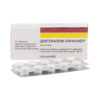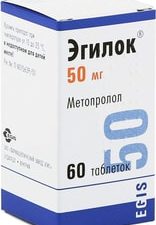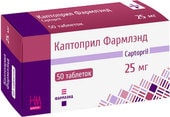Diroton Tablets 10mg: Effective Blood Pressure Control
Diroton tablets 10mg are a prescription medication used for the treatment of high blood pressure, heart failure, acute myocardial infarction, and diabetic nephropathy. This comprehensive guide delves into the detailed workings of Diroton, its benefits, potential side effects, and crucial information for patients.
Key Features:
- Active Ingredient: Lisinopril
- Dosage: Available in 5mg and 10mg tablets
- Presentation: Packaged in blister packs of 14 tablets x 2
- Mechanism of Action: Diroton inhibits the angiotensin-converting enzyme (ACE), which lowers blood pressure by reducing the vasoconstricting effects of angiotensin II.
Benefits:
- Effective Blood Pressure Control: Diroton is proven to effectively control high blood pressure in both monotherapy and combination therapy with other antihypertensive medications.
- Heart Failure Management: Diroton improves heart function and reduces the risk of hospitalization in patients with heart failure.
- Acute Myocardial Infarction Support: Diroton is used as a short-term treatment within 24 hours of an acute myocardial infarction to reduce the risk of death and cardiovascular complications.
- Diabetic Nephropathy Treatment: Diroton is effective in treating kidney damage associated with high blood pressure and type 2 diabetes.
Potential Side Effects:
While generally safe and well-tolerated, Diroton may cause side effects, including:
- Hypotension (low blood pressure): Especially in patients with hypovolemia, renal insufficiency, or heart failure.
- Cough: A common side effect, typically dry and persistent.
- Angioedema: Rare but serious swelling of the face, lips, tongue, and throat.
- Hyperkalemia (high potassium levels): May occur in patients with renal insufficiency, diabetes, or those taking potassium-sparing diuretics.
Important Precautions:
- Pregnancy: Diroton is not recommended during pregnancy. Consult your doctor for safe alternatives.
- Breastfeeding: The use of Diroton during breastfeeding is not recommended.
- Renal Impairment: Dose adjustments may be necessary for patients with kidney problems.
- Surgery/Anesthesia: Inform your surgeon about Diroton use prior to any surgery.
- Lithium: Avoid concomitant use of Diroton with lithium.
Dosage and Administration:
- Dosage: The dosage varies depending on the medical condition and individual patient factors.
- Frequency: Diroton is typically taken once daily.
- Timing: Take the medication at the same time each day, as recommended by your doctor.
- Absorption: Food intake does not affect absorption.
Interactions with Other Drugs:
Diroton may interact with other medications, including:
- Diuretics: May increase the risk of hypotension.
- Potassium-sparing Diuretics: May increase the risk of hyperkalemia.
- Other Antihypertensive Medications: May cause excessive blood pressure lowering.
- Lithium: May increase lithium levels in the body.
Patient Information:
- Consult your doctor: Before taking Diroton, it is crucial to discuss your medical history, current medications, and any allergies with your doctor.
- Follow instructions: Follow your doctor’s instructions regarding dosage, frequency, and duration of treatment.
- Regular monitoring: Regular blood pressure monitoring is essential during Diroton therapy.
- Report side effects: If you experience any side effects, particularly angioedema, persistent cough, or significant changes in potassium levels, report them to your doctor immediately.
This information is intended for educational purposes only and should not be considered medical advice. Always consult your doctor or a qualified healthcare professional for any questions regarding your health or treatment.
| INN | LISINOPRIL |
|---|---|
| The code | 327 |
| Barcode | 5 997 001 357 811 |
| Dosage | 10mg |
| Active substance | Lisinopril |
| Amount in a package | 20 |
| Manufacturer | Gedeon Richter Pls., Hungary |
| Importer | IOOO Interfarmaks 223028 Minsk region, Minsk district, Zhdanovichsky s / s, ag. Zhdanovichi, st. Star, 19a-5, room. 5-2 |
 Free worldwide shipping on orders $99+
Free worldwide shipping on orders $99+  US: temporary delays — postal services aligning new import rules,
US: temporary delays — postal services aligning new import rules,  EU: 1–2 weeks,
EU: 1–2 weeks,  Worldwide: 1–4 weeks
Worldwide: 1–4 weeks 











